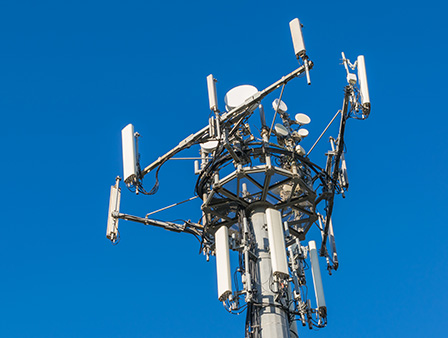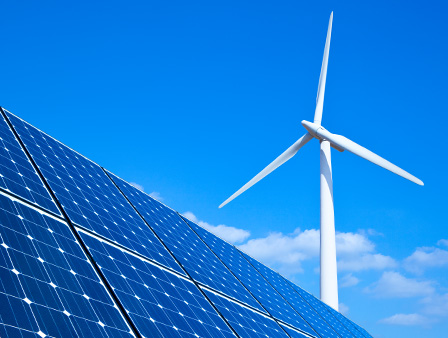
Digital Billboards And The Future Of Outdoor Advertising
If you’ve traveled anywhere in America by car, bus, or on foot, you’ve undoubtedly seen an electronic billboard. When we refer to an electronic or digital billboard, we are not only referring to traditional billboards like the ones you see next to freeways, but also smaller digital screens that might appear next to bus benches, shopping centers, or other high traffic areas. In order for any advertisement to really capture someone’s attention, the ad needs to engage the viewer. This is where smart billboards come into play.A smart advertisement, much like a smart phone or other wireless devices, is an advertisement that can dynamically react to its environment by sending and receiving data over a network. The concept of a smart advertisement has been around for quite some time; in fact, any digital, out of home advertising that can adapt its message based on the time, date, or the weather can already be considered a smart advertisement.Keep in mind that while these adaptive billboards may seem highly intelligent compared to traditional static billboards, they are still simple implementations that barely scratch the surface of what a truly high-tech billboard could achieve. Future billboards will dynamically react to their environment, changing the screen content based on information they can collect about you, the onlooker.In order to accomplish this task, the billboard or digital screens of the future will be equipped with an array of technologies ranging from cameras, radar, infrared, and antennas, which will provide the eyes and ears needed to be able to see, listen and react to their environment.An example of a more advanced digital outdoor ad might be one equipped with facial recognition cameras that are capable of identifying gender, facial expression, age, and the composition of a passing crowd. This capability would allow developers to program a series of videos that react dynamically to whoever may be in the vicinity.As these technologies become less expensive and more readily available, there is sure to be a push to develop and improve outdoor advertising for more intelligent interactivity. This expansion will provide a new level of convenience to consumers, and an opportunity for businesses to make their goods and services more widely known amongst their targeted demographic.If you are a developer who’s looking for a financial solution for your next billboard project, or if you happen to be the current owner of a billboard lease, Landmark Dividend may be of service to you. We are the largest and most experienced ground lease acquisition company in the country, and we can provide you with financial solutions that are perfectly suited to your needs. Please call us today at 800-843-2024 or click here to start the conversation.
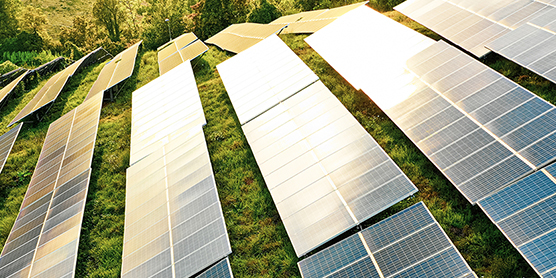
Solar Farm Land Lease Rates: How Much Are Solar Farms Worth To Landowners?
The rapid expansion in the solar industry has been driven by several key factors: government programs like the Investment Tax Credit (ITC), declining photovoltaic (PV) prices, and more recently, the significant incentives introduced by the Inflation Reduction Act (IRA). The IRA, enacted in 2022, has infused the renewable energy sector with long-term certainty through tax credits and funding, making solar development even more attractive by lowering the cost of capital and driving further adoption. Developers are now able to secure even faster returns on investment, bolstered by expanded federal support and technological advancements in solar energy production.This surge in solar energy production and the creation of solar farms across the United States continues to generate numerous financial opportunities for landowners, especially large landowners like farmers. With the IRA’s incentives, solar farm profits from photovoltaic panels are becoming even more lucrative, often surpassing traditional land use like agriculture or livestock farming.While some landowners may take the initiative to reach out to a solar developer, developers typically have a sophisticated understanding of where the most viable land is located and tend to proactively approach landowners. These developers are quick to act, particularly in light of the growing urgency created by the IRA’s favorable financial framework, which encourages rapid deployment of renewable energy projects.The value of solar farm lease rates is determined through an evaluation process of the land itself, followed by lease negotiations. Solar developers assess factors such as available land area, solar exposure, proximity to the electrical grid, and soil quality. Once a site meets the necessary criteria, developers will proceed with a survey and present a draft lease agreement to the landowner. This agreement typically includes details on monthly rent, lease duration, and the amount of acreage required.Rental payments to landowners can vary significantly, depending on the specific characteristics of the land and the scale of the solar installation. Solar farming has become an increasingly profitable venture, as installations generally require at least 4 acres of land, though some projects span hundreds of acres, allowing landowners to earn substantial annual income.As one of the nation’s largest lease acquisition companies, Landmark Dividend can help landowners unlock the full potential of their solar lease agreements by providing upfront capital. Rather than waiting for annual income from a solar lease, property owners can access a lump sum payment for the entire value of their lease now. This flexibility enables landowners to pursue other goals, whether it’s starting a new business, acquiring additional property, or even achieving early retirement. With the IRA accelerating the growth of the renewable sector, now is an ideal time for landowners to capitalize on solar lease opportunities.Even if you’re not currently interested in selling your solar farm lease, we can still provide you a no-obligation analysis and valuation of your lease to determine its true market value. Please call us at 800-843-2024 or click here to start the conversation.
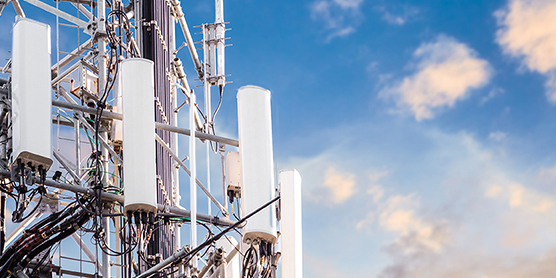
How Will The 5G Rollout Impact Cell Tower Lease Rates?
As we move further into 2024, the expansion of 5G networks is continuing to transform what internet-based products and services can achieve. From advanced autonomous vehicles to immersive augmented and virtual reality experiences, 5G is poised to bring about some of the most significant technological advancements since the birth of the internet.With 5G networks becoming more widespread, we are entering a new phase of network infrastructure development. This has important implications for landlords. The deployment of 5G requires a massive increase in the number of cell sites, especially as demand for faster, more reliable connections continues to soar. 2024 will see an acceleration of this trend, as telecom providers work to densify their networks, creating opportunities for property owners.5G networks promise speeds up to 100 times faster than 4G, but more importantly, they drastically reduce network latency. The near-elimination of latency allows for real-time communication between devices, making innovations like smart cities, remote surgeries, and machine-to-machine communication more practical and efficient. For this level of connectivity to be realized, however, network densification will continue to be critical.Network densification involves expanding cellular connectivity, particularly in areas where current infrastructure can’t meet rising consumer demands or where new technologies like 5G require more capacity. While new cell sites are necessary for this process, equipment upgrades on existing towers can also significantly improve both coverage and network capacity.For landlords, this densification presents potential financial opportunities. Those without existing cellular leases may be approached by telecom providers or infrastructure companies seeking new cell sites, particularly in underserved or high-demand areas. Though new cell tower leases can be rare, the rapid expansion of 5G in 2024 could bring more such agreements into play, making it a potential windfall for property owners in the right locations.Landlords with existing cell sites are also in a prime position to benefit from 5G. Many current cell towers and rooftop installations will require antenna upgrades or replacements to support 5G technology, which can affect the value of existing leases. Depending on the terms of a landlord’s agreement, upgrades could entitle them to higher rent, especially if the site ends up supporting all major carriers after the upgrade.At Landmark Dividend, we specialize in helping landlords maximize the value of their cell tower leases. While monthly rental payments from a cell lease can provide a steady income stream, a cell tower lease buyout could deliver more substantial financial benefits in both the short and long term. For many property owners, a buyout offers the flexibility to access a lump sum of capital now, which can be reinvested in other ventures or real estate through mechanisms like the 1031 exchange—allowing landlords to defer capital gains taxes by reinvesting in like-kind properties.To learn more about cell tower lease buyouts and how a 1031 exchange can benefit you, contact us today at 800-843-2024 or click here. Our team is ready to provide you with straightforward advice and help you make the best possible financial decision regarding your cell tower lease.

Wind Turbine Lease Rates: How Much Are They Worth?
A wind farm lease is a long-term agreement between a developer and a property owner, granting the developer rights to build and operate wind turbines on the land. In exchange, the property owner receives rental payments over the lease term, typically 35 years. Wind energy continues to be a highly cost-effective solution for developers looking to generate and sell renewable energy, particularly as demand for sustainable power surges.Wind turbines offer a faster time to operation compared to other renewable energy sources, such as solar farms. Once the land is approved, turbines can be fully operational within three to six months. This speed, coupled with wind farms’ low environmental impact on agricultural land, makes them an attractive option for energy developers seeking a quick return on investment (ROI) and eco-conscious developers looking to minimize their environmental footprint.When a developer identifies a potential site for a wind farm, a surveyor is typically sent to evaluate the land’s suitability. This process takes into account several critical factors that determine the productivity of the farm. Location remains the most decisive factor. For a site to be viable, it needs consistent wind speeds of at least 4.5 meters per second, unobstructed wind flow, and proximity to regions where energy demand or carbon reduction efforts are high.Most wind farm projects require at least 60 acres of land per megawatt of energy generated. However, only about 3% of the land is typically used for turbines and supporting infrastructure, meaning the vast majority of the land can continue to be used for other purposes, such as farming. This balance makes wind farms an excellent fit for landowners who want to generate additional revenue without sacrificing the primary use of their land.Although rental payments from a wind farm lease can provide steady long-term income, some property owners find that an upfront lump-sum payment offers greater financial flexibility. A wind lease buyout allows landowners to receive the full value of their lease immediately, rather than waiting for incremental payments over 35 years. With a buyout, property owners can leverage the capital for various purposes—whether it’s early retirement, funding a new business venture, or purchasing additional property.As one of the leading lease acquisition companies, Landmark Dividend offers industry-leading wind turbine lease buyouts. By providing large, lump-sum payments, we help property owners maximize the value of their wind farm leases quickly. This approach empowers landowners to unlock the financial potential of their leases and pursue new opportunities.To receive a free, no-obligation valuation of your wind farm lease, call us today at 800-843-2024 or click here to begin the conversation.
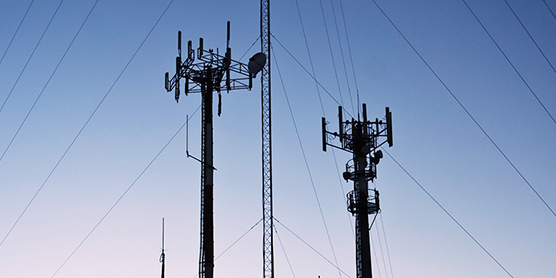
Cell Tower Lease Rates Explained
A cell tower lease is an agreement between a property owner and a telecommunications provider such as AT&T, Verizon, or T-Mobile, granting the provider the right to install and operate cellular equipment on the property. In return, the property owner receives monthly rental payments over the term of the lease. Cell towers on private property have become critical in expanding network capacity, particularly as the demand for faster data speeds and improved connectivity continues to rise, especially with the ongoing deployment of 5G.As telecommunications companies race to upgrade their networks and meet the exploding demand for mobile data, securing prime locations for cell towers has never been more important. Property owners with valuable land in underserved or high-demand areas may be in an excellent position to benefit from this trend.Key Factors Influencing Cell Tower Lease Rates:
- Type of Cell Tower Lease: Different types of cellular leases—ranging from rooftop agreements to ground leases—yield varying rental rates. For example, ground leases for traditional macro towers generally offer higher returns than rooftop agreements, but both types have value depending on the needs of the carrier and the specifics of the location.
- Geographic Area of Service: Location is everything when it comes to cell tower leases. If your property is in an area with limited alternative sites for cellular expansion, the value of your tower lease increases substantially. High-demand urban centers, suburban zones, and rural areas with coverage gaps are particularly attractive for telecom providers.
- Available Alternatives and Technological Trends: Advances in wireless technologies, such as small cell infrastructure and Distributed Antenna Systems (DAS), can impact the demand for traditional cell towers. As providers continue to roll out 5G, they are looking at a mix of macro towers, small cells, and fiber to fill gaps in their networks. If a carrier can deploy small cell infrastructure or DAS instead of building a new tower, the value of existing tower leases could diminish.
- Contract Terms and Lease Structure: The details of your lease agreement—such as rent escalation clauses, lease length, and renewal terms—also play a big role in determining the value of your lease. Favorable terms for the property owner, like annual rent increases, can make your lease more valuable, whereas less favorable terms could limit long-term profitability.
- 5G Expansion and Network Densification: The rollout of 5G is driving a major wave of network densification. While traditional macro towers will continue to play a key role, the expansion of small cells and other infrastructure to boost coverage in high-traffic areas is becoming increasingly common. Property owners in both urban and suburban markets may see new opportunities for leases as carriers work to eliminate coverage gaps.
- Carrier Consolidation and Lease Termination Risk: While demand for connectivity is growing, consolidation within the telecom industry and technological advancements pose risks to property owners. When carriers merge or optimize their networks, they may terminate leases if a tower site becomes redundant. For property owners, this means that relying solely on long-term rental payments can carry significant financial risk. Selling your lease for a lump sum allows you to capture its full value now while minimizing the risk of future lease termination or renegotiation.
- Increasing Pressure to Maximize Profitability: Telecom providers are constantly reassessing the cost-benefit ratio of their infrastructure investments. As a result, they may be incentivized to renegotiate or terminate existing leases if they can reduce costs by consolidating services onto fewer towers. Property owners should be aware of these trends and consider how their lease could be impacted by such shifts.
- Eliminate the Risk of Lease Termination: As mentioned, carriers may choose to terminate or renegotiate leases as they consolidate their networks, deploy new technologies, or merge with other companies. By selling your lease, you can avoid the uncertainty of a potential termination and capture the full value of the lease today.
- Capitalize on Current Market Demand: The demand for cellular infrastructure is at an all-time high, driven by the 5G rollout and consumer demand for faster, more reliable data. By selling your lease now, you can take advantage of these favorable market conditions and secure a lump sum that reflects the present value of your lease.
- Unlock Financial Flexibility: A lease buyout allows you to unlock the value of your cell tower lease all at once, providing you with capital that can be reinvested in other ventures, used to purchase additional real estate, or put toward retirement. The financial flexibility provided by a lump-sum payment can be a significant advantage over waiting for incremental rental payments that may be subject to future risks.

Landmark Dividend - June
Landmark Dividend consistently ranks among the highest in the industry for customer service, expertise, fast closing times, transparency and flexibility. Our clients value our honesty and commitment to service throughout the lease buyout transaction. Here are the top 5 reasons people do business with us.
Select your area of interest
Landmark Dividend
866-526-3675
400 Continental Boulevard
Suite 500
El Segundo, CA 90245


